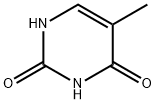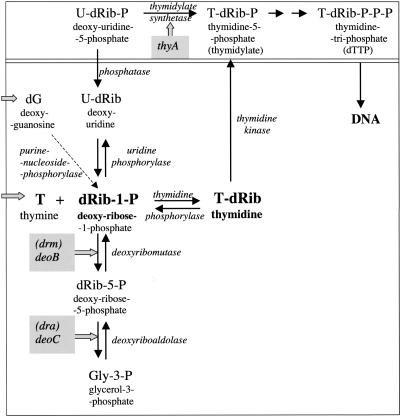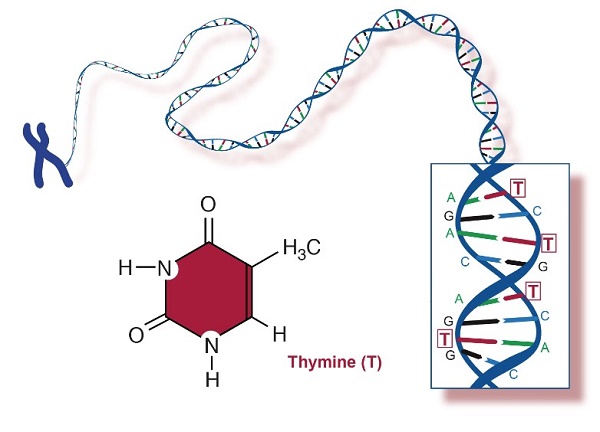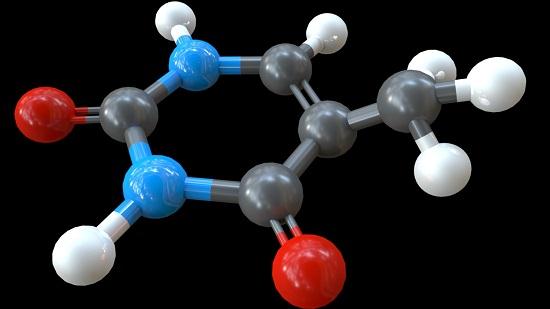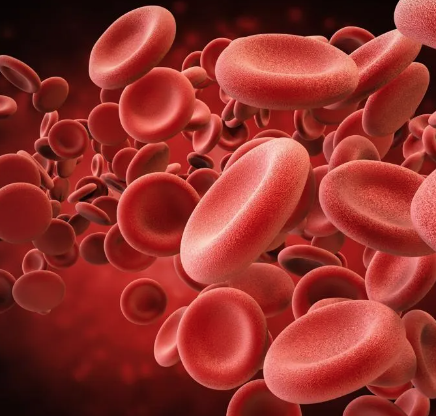Thymine: Biological Functions and Use in Bacterial Physiology
General Description
Thymine, a fundamental component of DNA, is essential for genetic stability and hereditary transmission. Its role in base pairing with adenine forms the genetic code, crucial for protein synthesis and cellular processes. Thymine starvation in bacteria leads to thymine-less death (TLD), a phenomenon studied for its implications in genetic recombination and the SOS response. TLD has been instrumental in genetic studies, enriching for double mutants and increasing plasmid curing frequency. Moreover, thymine starvation has provided insights into bacterial physiology and potential implications for cancer research. Overall, understanding thymine's functions and effects on cellular processes is vital in molecular biology and genetics.
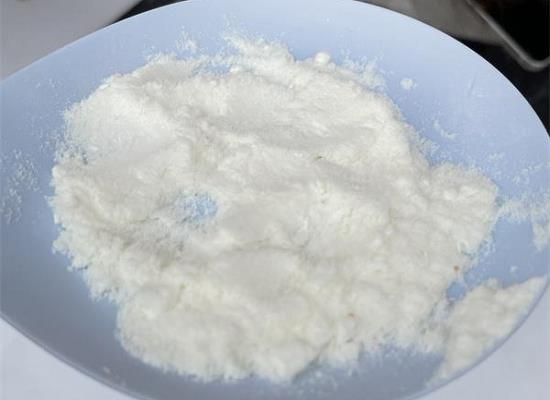
Figure 1. Thymine
Overview
Thymine, one of the fundamental components of deoxyribonucleic acid (DNA), plays a crucial role in the genetic makeup of living organisms. As a pyrimidine nucleobase, it pairs with adenine to form the fundamental building blocks of the DNA double helix, stabilizing the structure through hydrogen bonding. Thymine, also known as 5-methyluracil, differs from uracil by the addition of a methyl group at the 5th carbon, a modification that distinguishes DNA from RNA. n DNA, thymine combines with the sugar deoxyribose to form the nucleoside deoxythymidine, or thymidine. This combination lacks a phosphate group, distinguishing it from a complete nucleotide. Thymine's properties include its heterocyclic, aromatic nature, making it an organic compound containing a ring structure with atoms of carbon and additional elements such as nitrogen. Its aromaticity confers stability, preventing easy degradation or reactivity with other substances. nderstanding thymine's role and properties is essential for grasping the intricacies of DNA structure and function, as well as its significance in the broader context of genetics and molecular biology. 1
Biological Functions
Thymine, a key component of DNA, plays critical roles in biological processes essential for cellular function and hereditary maintenance. Firstly, thymine is synthesized through a complex series of reactions involving various enzymes and substrates. Carbamoyl phosphate, derived from bicarbonate, glutamine, ATP, and water, undergoes several transformations catalyzed by enzymes such as carbamoyl phosphate synthetase and aspartate transcarboxylase. Eventually, uridine monophosphate is synthesized, which is then converted to thymine via reduction and methylation reactions catalyzed by ribonucleic reductase and thymidyl synthetase, respectively. Functionally, thymine is a crucial component of the DNA molecule, where it forms base pairs with adenine through hydrogen bonding. These base pairs constitute the genetic code, encoding the sequence of amino acids in proteins. Thus, thymine's presence ensures the accurate transmission of genetic information from one generation to the next, contributing to the organism's hereditary traits. Moreover, DNA, containing thymine, serves as a template for various cellular processes, including DNA replication, transcription, and repair. By accurately replicating and transcribing genetic information, thymine facilitates the synthesis of proteins necessary for cellular function and metabolism. In summary, thymine's biological functions encompass its role in DNA structure and function, genetic code transmission, and cellular processes essential for organismal viability and heredity. 2
Use in Bacterial Physiology
Thymine, a key component of DNA, plays a crucial role in bacterial physiology. Thymine starvation in thymine auxotrophic bacteria leads to a phenomenon known as thymine-less death (TLD), which has been extensively studied in bacteriology. When deprived of thymine, thymine auxotrophs continue to increase in mass by synthesizing RNA and protein, but not DNA, leading to the formation of filamentous cells that eventually lose colony-forming ability. However, the cells can recover if thymine is reintroduced before plating, demonstrating the reversible nature of TLD. TLD is not limited to E. coli and has been observed in various gram-negative and gram-positive species, as well as in other organisms such as Saccharomyces cerevisiae and mammalian cells. The molecular and cellular reactions to thymine starvation associated with TLD include mutagenesis, induction of prophages, genetic recombination, and triggering of the SOS response. TLD has been utilized in genetic studies to enrich for double mutants, increase plasmid curing frequency, and study physiological consequences of its relationships with other genetic factors. Furthermore, thymine starvation has been exploited to study experimental evolution and has provided insights into bacterial cell physiology. Recent research has also linked thymine starvation to the activation of the mazEF suicide module in E. coli, suggesting potential implications for cancer research. Overall, the study of thymine starvation and TLD continues to offer valuable insights into various aspects of bacterial physiology and genetics, making it a crucial area of research in bacteriology. 3
Reference
1. BD Editors. Thymine. Biology Dictionary. 2017.
2. Schneider M, Maksimenka R, Buback FJ, Kitsopoulos T, Lago LR, Fischer I. Photodissociation of thymine. Phys Chem Chem Phys. 2006; 8(25): 3017-3021.
3. Zaritsky A, Woldringh CL, Einav M, Alexeeva S. Use of thymine limitation and thymine starvation to study bacterial physiology and cytology. J Bacteriol. 2006; 188(5): 1667-1679.
Related articles And Qustion
See also
Lastest Price from Thymine manufacturers

US $0.00/kg2025-08-26
- CAS:
- 65-71-4
- Min. Order:
- 1kg
- Purity:
- 99%min
- Supply Ability:
- 20tons
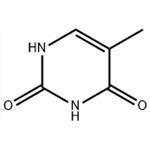
US $0.00-0.00/Kg2025-04-21
- CAS:
- 65-71-4
- Min. Order:
- 1Kg
- Purity:
- 98%
- Supply Ability:
- 20Ton
